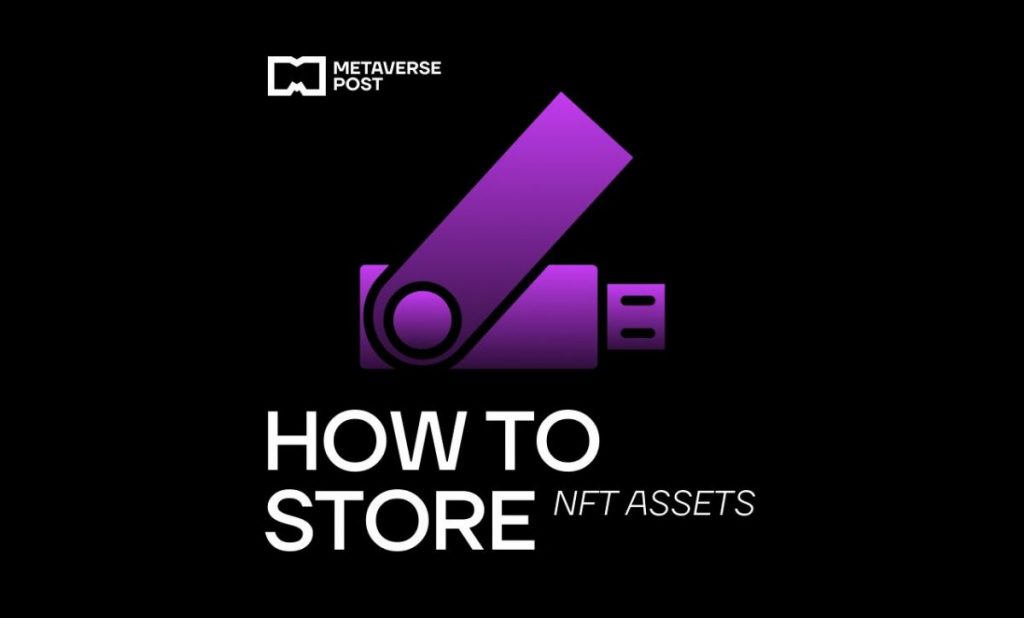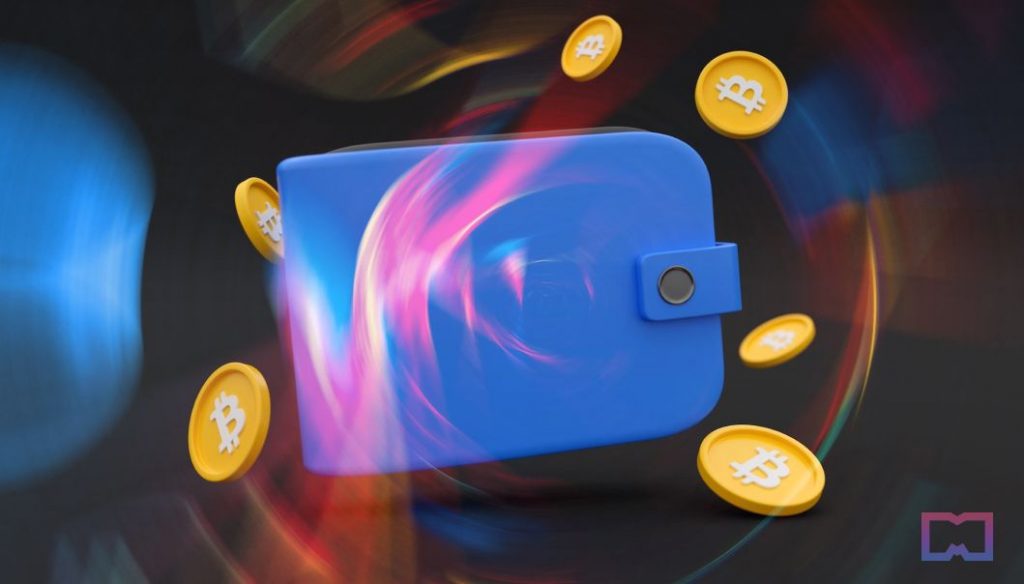How to Store NFTs: The Ultimate Guide 2022


In Brief
There are only 2 options to store your assets in a hot wallet (custodial) or a cold wallet (non-custodial)
A hardware wallet is the ideal location for storing NFT data
Just like any other digital asset, NFTs need to be stored in a secure and reliable way. There are a few different options available for doing this, and the best option for you will depend on your specific needs and requirements.
One option is to use a dedicated NFT wallet. These wallets are designed specifically for storing and managing NFTs, and they offer a number of features and security measures that make them ideal for this purpose.

Another option is to use a standard cryptocurrency wallet that supports NFTs. While not all wallets support NFTs, there are a growing number of options available that do.
With an unchangeable digital ledger, blockchain gives artists the ability to make and approve originals so they can take control of their property without a third party in an environment that doesn’t require trust.
This development paves the road for a flourishing market — not just in digital arts, but also in real estate, identities, and gaming, to name a few —over the next decade. As digital ownership expands into valuable assets, it becomes vital to store NFTs properly to avoid loss or theft.
The most important considerations for storing NFTs are security and reliability. When choosing a storage option, you should look for a solution that offers both of these features.
Dedicated NFT wallets are one option that offers both security and reliability. These wallets are designed specifically for storing and managing NFTs, and they offer a number of features and security measures that make them ideal for this purpose.
Another option is to use a standard cryptocurrency wallet that supports NFTs. While not all wallets support NFTs, there are a growing number of options available that do.
When choosing a wallet or storage solution, be sure to research the security measures that are in place to protect your NFTs. The last thing you want is to lose your NFTs due to theft or security breaches.
The growing market of NFTs
According to a recent report, the global non-fungible token (NFT) market is expected to grow from $24 million in 2020 to $341 million by 2025, at a compound annual growth rate (CAGR) of 74.2%. This market expansion is being driven by a number of factors, including the increasing adoption of blockchain technology, the growing popularity of NFTs, and the increasing investment in NFT projects.
With the rapid expansion of the NFT market, it’s important to have a storage solution that can keep pace with this growth. Dedicated NFT wallets are one option that offers both security and reliability. These wallets are designed specifically for storing and managing NFTs, and they offer a number of features and security measures that make them ideal for this purpose.

Christie’s sale in March of an NFT-based artwork by Mike Winklemann, also known as Beeple, for $69.3 million made headlines around the world and shone a spotlight on the potential of NFTs. This sale marked the first time that an NFT had been sold at auction by a major auction house, and it is likely that we will see more sales of this nature in the future.
With the increasing popularity and value of NFTs, it’s important to choose a storage solution that can provide both security and reliability. Dedicated NFT wallets are one option that offers these features, and they should be considered when choosing a storage solution for your NFTs.
Why is it important to properly store NFTs?
Nonfungible tokens have recently become high-value rare assets that are attracting investors as well as becoming targets for hackers looking to steal digital artwork or credit card information in order to acquire more. As a result, it has become increasingly important to find secure storage solutions for NFTs.
NFTs are stored on the blockchain, which is a digital ledger that cannot be changed or tampered with. This makes NFTs very secure, but it also means that if you lose your private key — which is like a password for your NFTs — you will lose access to your NFTs forever.
For this reason, it is important to choose a storage solution that offers both security and reliability. Dedicated NFT wallets are one option that offers these features, and they should be considered when choosing a storage solution for your NFTs.
As NFTs continue to grow in popularity, new types of cryptocurrency wallets have been created specifically for storing NFT data. These wallets offer a number of features and security measures that make them ideal for storing NFTs.
If you are looking for a secure storage solution for your NFTs, be sure to research the various options that are available and choose the one that best meets your needs.
What types of storage are available?

Storing NFTs securely is just as important as ensuring the security of your cryptocurrencies. If you leave them in an exchange or marketplace platform, you could fall victim to a hack, fraudulent activity by the exchange, or a single point of failure.
There are a number of storage options available for NFTs, and the best option for you will depend on your needs. Here are some of the most popular storage solutions for NFTs:
- Crypto wallets
- NFT wallets
- Physical storage
- Cloud storage
- Decentralized storage
1. Crypto wallets
Crypto wallets are software programs that store your private keys and allow you to interact with the blockchain. They come in many different forms, including online, offline, mobile, and hardware wallets.
2. NFT wallets
NFT wallets are a type of crypto wallet that is specifically designed for storing and managing NFT data. These wallets offer a number of features and security measures that make them ideal for this purpose.
3. Physical storage
Some people choose to store their NFTs offline in physical storage devices, such as USB drives or hard drives. This option can be more secure than keeping NFTs on an exchange or marketplace platform, but it is important to make sure that the physical storage device is properly encrypted and stored in a safe location.
4. Cloud storage
Cloud storage solutions can also be used to store NFT data. This option can be convenient, but it is important to choose a reputable and secure service provider.
5. Decentralized storage
Decentralized storage solutions are a type of cloud storage that uses a network of computers to store data. This option can offer increased security and redundancy, but it is important to choose a reputable and secure service provider.
Most common ways to store NFTs
Software Wallets
Cryptocurrency wallets are software programs that store your private keys and allow you to interact with the blockchain. They come in many different forms, including online, offline, mobile, and hardware wallets.
NFT wallets are a type of crypto wallet that is specifically designed for storing and managing NFT data. These wallets offer a number of features and security measures that make them ideal for this purpose.
InterPlanetary File System (IPFS)
IPFS is a decentralized storage system that uses a network of computers to store data. This option can offer increased security and redundancy, but it is important to choose a reputable and secure service provider.
Cloud Storage
Cloud storage solutions can also be used to store NFT data. This option can be convenient, but it is important to choose a reputable and secure service provider.
Keep track of cryptocurrency distributions in our Airdrops Calendar.
FAQs
One of the most well-known cryptocurrency wallets is Coinbase. It enables you to store not just a variety of cryptocurrencies but also your NFT collectibles. It is accessible on iOS and Android, where it was once known as Tosh Wallet.
Cold storage hardware wallets, which are regarded as the best and safest option to keep your NFTs, offer the highest level of protection for your digital assets because all of your sensitive data is kept offline. All of your data is further password-protected to give an additional level of security.
Yes is the short response. In the same manner that cryptocurrency assets are taken from online wallets and exchanges, your assets can be hacked on an NFT. According to The Verge, an NFT, or “non-fungible token,” can theoretically hold anything digital, such as images, animated GIFs, music, or video game goods.
A hardware wallet is the ideal option for storing NFTs because it is offline. A software wallet or an IPFS are more options. Using a strong VPN and an antivirus are recommended methods for protecting your NFT assets. In-depth study should be done before investing in NFT projects.
Your NFTs are not stored by Coinbase NFT. Instead, your NFTs are stored on the blockchain where it is located, and you can access and manage them using your wallet address and private keys.
NFTs are not natively visible in the UI but can be added as custom tokens in the web extension. NFTs are visible in MetaMask Mobile’s Collectibles section. Please keep in mind that some NFTs might not display properly or may not appear at all in the Collectibles section of the mobile app.
Most investors, makers, and collectors of NFTs trust The Ledger X, the greatest hardware wallet currently available, to keep their digital assets, including NFTs and cryptocurrency, securely. To protect your NFTs, this wallet, which costs just $149 on Ledger’s website, is well worth the price.
Purchasing a cold storage hardware wallet and moving the digital assets there is the best option to store NFTs offline. The wallet won’t be accessible to keyloggers and hackers because it will always be offline. Additionally, each hardware wallet includes a password and ID for additional security.
Conclusion
When it comes to storing your NFTs, there are a number of options available. The best option for you will depend on your needs. Be sure to research the various options and choose the one that best meets your needs.
Additional NFT resources
Disclaimer
In line with the Trust Project guidelines, please note that the information provided on this page is not intended to be and should not be interpreted as legal, tax, investment, financial, or any other form of advice. It is important to only invest what you can afford to lose and to seek independent financial advice if you have any doubts. For further information, we suggest referring to the terms and conditions as well as the help and support pages provided by the issuer or advertiser. MetaversePost is committed to accurate, unbiased reporting, but market conditions are subject to change without notice.
About The Author
Damir is the team leader, product manager, and editor at Metaverse Post, covering topics such as AI/ML, AGI, LLMs, Metaverse, and Web3-related fields. His articles attract a massive audience of over a million users every month. He appears to be an expert with 10 years of experience in SEO and digital marketing. Damir has been mentioned in Mashable, Wired, Cointelegraph, The New Yorker, Inside.com, Entrepreneur, BeInCrypto, and other publications. He travels between the UAE, Turkey, Russia, and the CIS as a digital nomad. Damir earned a bachelor's degree in physics, which he believes has given him the critical thinking skills needed to be successful in the ever-changing landscape of the internet.
More articles

Damir is the team leader, product manager, and editor at Metaverse Post, covering topics such as AI/ML, AGI, LLMs, Metaverse, and Web3-related fields. His articles attract a massive audience of over a million users every month. He appears to be an expert with 10 years of experience in SEO and digital marketing. Damir has been mentioned in Mashable, Wired, Cointelegraph, The New Yorker, Inside.com, Entrepreneur, BeInCrypto, and other publications. He travels between the UAE, Turkey, Russia, and the CIS as a digital nomad. Damir earned a bachelor's degree in physics, which he believes has given him the critical thinking skills needed to be successful in the ever-changing landscape of the internet.

















































